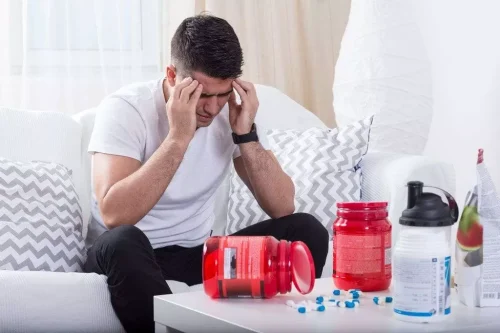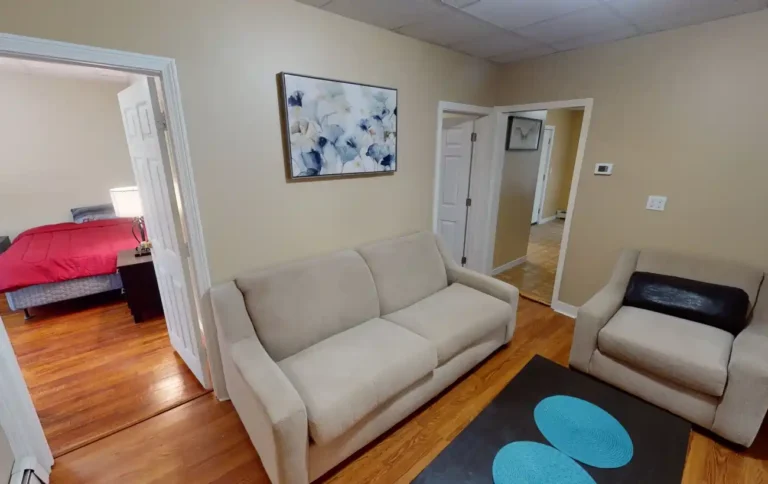Creating a New Narrative: Rebuilding Life After Drug Addiction
July 5, 2022 12:06 pm Leave your thoughts
As you progress through your recovery, it’s essential to cultivate a sense of purpose and personal growth. Exploring new interests, hobbies, and opportunities can fill the void left by addiction and provide a renewed sense of fulfillment and direction. Recovery from addiction is not solely a physical process; it also involves nurturing your mental and emotional well-being. By cultivating a sense of inner peace and emotional stability, you’ll be better equipped to navigate the challenges that may arise during your recovery journey. Practices like yoga and mindfulness have been shown to significantly reduce cortisol levels and depressive symptoms, highlighting their importance in mental and emotional well-being during recovery. The processes of neural plasticity and neural toxicity that deeply entrench the behaviors of substance use in the brain can make those behaviors difficult to change.
Grateful Recovery: Cultivating Gratitude and Spirituality in Sobriety
- If you can take small steps forward in taking the actions necessary to fix problems and move towards your goals, those little steps will add up to major accomplishments before you know it.
- Activities like exercise classes, creative hobbies, and volunteer work provide positive connections.
- If you or a loved one is living with addiction and ready to pursue recovery, we can help.
- Help is available in many forms, including support groups and community involvement.
- They may even expect too much now that you are back to being sober.
Here are a few strategies on how to rebuild your life for long-term recovery. Research and clinical experience have identified a number of factors that promote recovery. A third is establishing and maintaining a strong sense of connection to others; support helps people stay on track, and it helps retune the neural circuits of desire and goal-pursuit. Learning new coping skills for dealing with unpleasant feelings is another pillar of recovery.
Consider joining a 12-step program
- This process fosters resilience, empathy, and personal growth, drawing strength from overcoming adversity.
- Rebuilding life after addiction is not simply about staying sober; it’s about crafting a new narrative that embodies hope, purpose, and fulfillment.
- Though this can be a difficult process for some, it’s important to cleanse your body of these substances so that you’re ready both physically and mentally for the work that lies ahead in rehab.
- As individuals transition from addiction to sobriety, they may encounter emotional challenges and adjustments.
- Be open to modifying your goals, strategies, or routines if they are not proving to be effective; remain flexible and adaptable.
- There are a variety of activities that can help you stay focused, connected, and engaged with others.
- We will come back to discussing what you can do to stay drug free and find success in life.
These individuals can offer words of encouragement during tough times, provide guidance and advice when needed, and be a source of inspiration to push us forward. Not only does having a strong support system assist in motivation, but it also carries the added benefit of providing us with a sense of community and belonging. In 2018, I experienced one of the darkest days of my life rebuilding your life after addiction when I lost my 15-year-old daughter to the tragedy of suicide. I could have easily given into my demons of alcohol instead of staving off all the urges and cravings. I had to make sure I reached out to someone who would hold me accountable and not leave me to my methods, which proved vital in my journey. Those in recovery must be willing to focus on the H.A.L.T. philosophy.
- Here are some tips for navigating the challenges of early recovery.
- People in recovery often face challenges and obstacles along the way.
- Plus, many have gone through similar experiences as you and can offer a unique perspective.
- Whatever your life goals, looking back and appreciating your progress can help greatly in keeping you on track and feeling good about where you are today.
- Team sports like soccer are a fantastic way to meet people who are invested in a healthier lifestyle, or you could just take up jogging, walking, or cycling in nature.
Ready to Get Started?
The example set by others who have successfully traversed the recovery terrain can instill hope and optimism, another active recovery ingredient. Actively seeking input from peers on the path to recovery, a clinician, or both can be invaluable early on. Hundreds of studies of addictive behavior change reveal that a common process underlies all progress toward recovery. Researchers have identified and mapped out five stages of change, and they can be used as a kind of recovery GPS—a guide to determine where anyone may be in the process of recovery. Still, it’s important to recognize that the recovery change process itself is very difficult. The journey to remission can be bumpy, and it can take a long time.
Rebuilding Your Life After Addiction: 10 Tips for a New Start
- They can be incredibly helpful in finding purpose and meaning in life after addiction.
- Not only is addiction relapse common, relapse is not considered a sign of failure.
- Warren is a Licensed Master Social Worker, who specializes in substance abuse and mental health treatment.
- Addiction can make it hard to feel good about yourself and your abilities, especially if you find yourself focusing on past mistakes.
- Going multiple days without sleep and then crashing are only a few basic models of sleep schedules that qualify as rest for a substance abuser.
- Addiction doesn’t just affect individuals; addiction is a family affliction.
- Clinically, Warren has developed a therapeutic skillset that utilizes a strengths-based perspective, Twelve Step philosophies, Cognitive Behavioral Therapy and Motivational Interviewing.
Self-help strategies can be a good way to start improving your self-esteem. If you continue to struggle with low-self esteem, talk to your doctor or mental health professional. They can recommend treatments that may help, which may include psychotherapy or medications to treat underlying feelings of depression or anxiety.
Limit your alcohol intake.

Saying a mantra, substituting thoughts of recovery goals, praying, reading something recovery-related, reaching out to someone supportive—all are useful tactics. Of course, there are also people choose to believe that consciousness and spiritual experiences will eventually be explained by neuroscience. In being drug-free, you have the freedom to follow your convictions and explore these questions. Having religious beliefs or a belief in something beyond scientific explanation is not necessary.

Managing Stress in Life After Rehab
If you go out with your friends, ask them to not drink around you or just avoid going to places where you may get access to drugs and alcohol. It’s crucial to engage in continuous recovery practices, such as attending support group meetings (e.g., AA or NA), seeking ongoing therapy and maintaining a commitment to abstain from substance use. These practices provide a stable foundation for rebuilding your life, offering support and accountability.

How to Manage Workplace Stress

You beat substance abuse and addiction, and now the time has come to change other habits correlating to how you relate to others, things you do for them, handling obligations, and more. That is because the brain is plastic and changes in response to experience—the capacity that underlies all learning. In one set of studies looking at some measures of dopamine system function, activity returned to normal levels after 14 months of abstinence. Over time, reward circuits regain sensitivity to respond to normal pleasures and to motivate pursuit of everyday activities. Areas of executive function regain capacity for impulse control, self-regulation, and decision-making. The best way to handle a relapse is to take quick action to seek help, whether it’s intensifying support from family, friends, and peers or entering a treatment program.
Choosing recovery is a courageous act, so be kind to yourself throughout this process. Knowing your limits is key to knowing when it’s time to ask for help, and fortunately, there are many resources to help you with long-term success. BetterHelp can connect you to an addiction and mental health counselor. With the sheer amount of activities and hobbies you can take up, it may be hard to know where to start.
What should I do if I relapse?
You may be given free time to choose an activity, such as attending a fitness session if your rehab center has a gym. Below are examples of what takes place during a typical day in rehab. Of course, what your day looks like will vary based on the rehab center and its approach, your addiction, and your personal circumstances. https://ecosoberhouse.com/ Our team of medical experts are there for you in every step of the way, from finding the right doctor and hospital to any kind of assistance. We educate and empower families to ensure that right healthcare decisions are made. With personalized advice, we are changing the face of healthcare delivery across India.
Categorised in: Sober living
This post was written by sa-admin
